Residents of Moblissa, Linden/Soesdyke Highway, remain unsatisfied with the poor state of the Moblissa road and are calling on government to have Chinese timber firm, Bai Shan Lin fix the damage since its trucks are responsible.
This is after the Inter-American Development Bank would have made $90 million available toward the repairs and after the Ministry of Public Works would have signed off on the completed works.
Residents also say that the Chinese logging company is now removing loam from a different pit after being banned last year from illegally mining another loam pit. What seems to be legitimate reasons for these concerns were confirmed yesterday when Stabroek News visited the community.
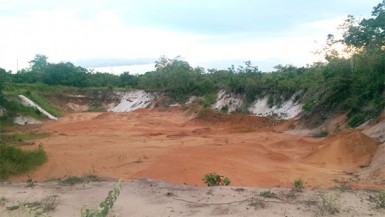
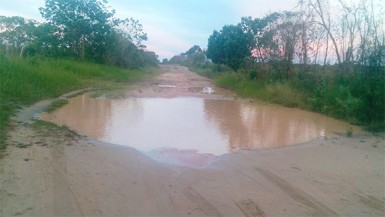
Region 10 Chairman Sharma Solomon had said that Bai Shan Lin had promised to repair three of the seven miles of road which led into the farmlands. The company’s heavy-duty trucks are a regular feature on the road and are credited with destroying the three miles of the seven-mile road which is used by Moblissa farmers to access their farmlands.
Pursuant to its agreement to repair the road, Bai Shan Lin applied for and was granted concessions to move laterite across the Mackenzie/Wismar Bridge to aid in the fixing of the road. The concession was pulled back though, after it was noted that though 144 truckloads of laterite and two light vehicles had crossed the bridge, less than ten truckloads of the material was taken to Moblissa to fix the road. The rest, Bai Shan Lin took and used to facilitate the construction of the road it is building to Conception. In all Bai Shan Lin benefited from concessions to the value of $216,800.
During the drive into Moblissa yesterday, potholes littered several stretches of the road making accessing the area painstaking. Other areas have suffered substantial erosion. One man said yesterday that taxis from Linden charge Moblissa residents $2000 to get to get as far as the hill above the Moblissa Creek.
Unless residents are prepared to fetch groceries, furniture, electronics and whatever else they bought from Linden they must pay an additional $2000 to get to the bottom of the hill. The extra money is necessary to compensate the taxi drivers for the risk they take
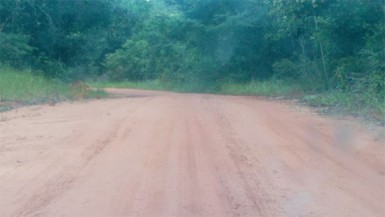
navigating their vehicles down the all but impassable stretch of road between the hill-top and the Moblissa Creek.
The road beyond the creek though, is in an even worse condition. Residents say Bai Shan Lin is to blame for this as well, although the company has given no commitment to fix that particular stretch of road. The five miles of road from the creek to the farm area is so treacherous that only one taxi driver, a resident explained, dares to traverse it. He is able to do so because of special modifications made to the vehicle. And, he does so at the cost of $7000 per trip. Persons unable to afford the cost of transportation are forced to take their belongings into the area on foot.
Mining of loam
Bai Shan Lin has also reportedly re-commenced mining loam from a pit a few feet from the pit it was banned from after it illegally removed 47,000 tonnes of loam which was first thought to be laterite. Checks of the location suggested that there had been no activity
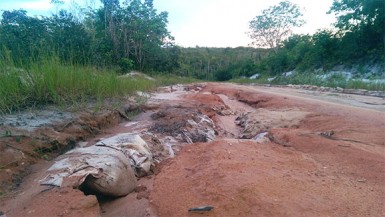
in the pit for a while although it was clear that material had been removed. It is not clear if Bai Shan Lin has obtained the necessary documentation and permissions to re-commence the mining of loam.
Solomon says he is certain that this is not the case.
An Environmental Social Impact Assessment conducted by Charles Ceres had found such mining posed risks for the ground water in the area. Also, since the mining was taking place just about 20 feet off the road it is believed the integrity of the road is at risk. The new location is also just a few feet off the road.
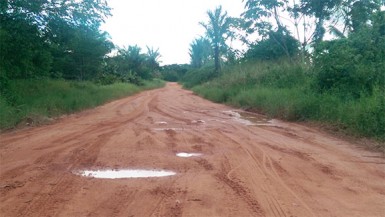
Ceres also found that it was common for employees of the company to wash equipment in the Moblissa Creek, used by residents primarily for bathing but also for drinking water.




